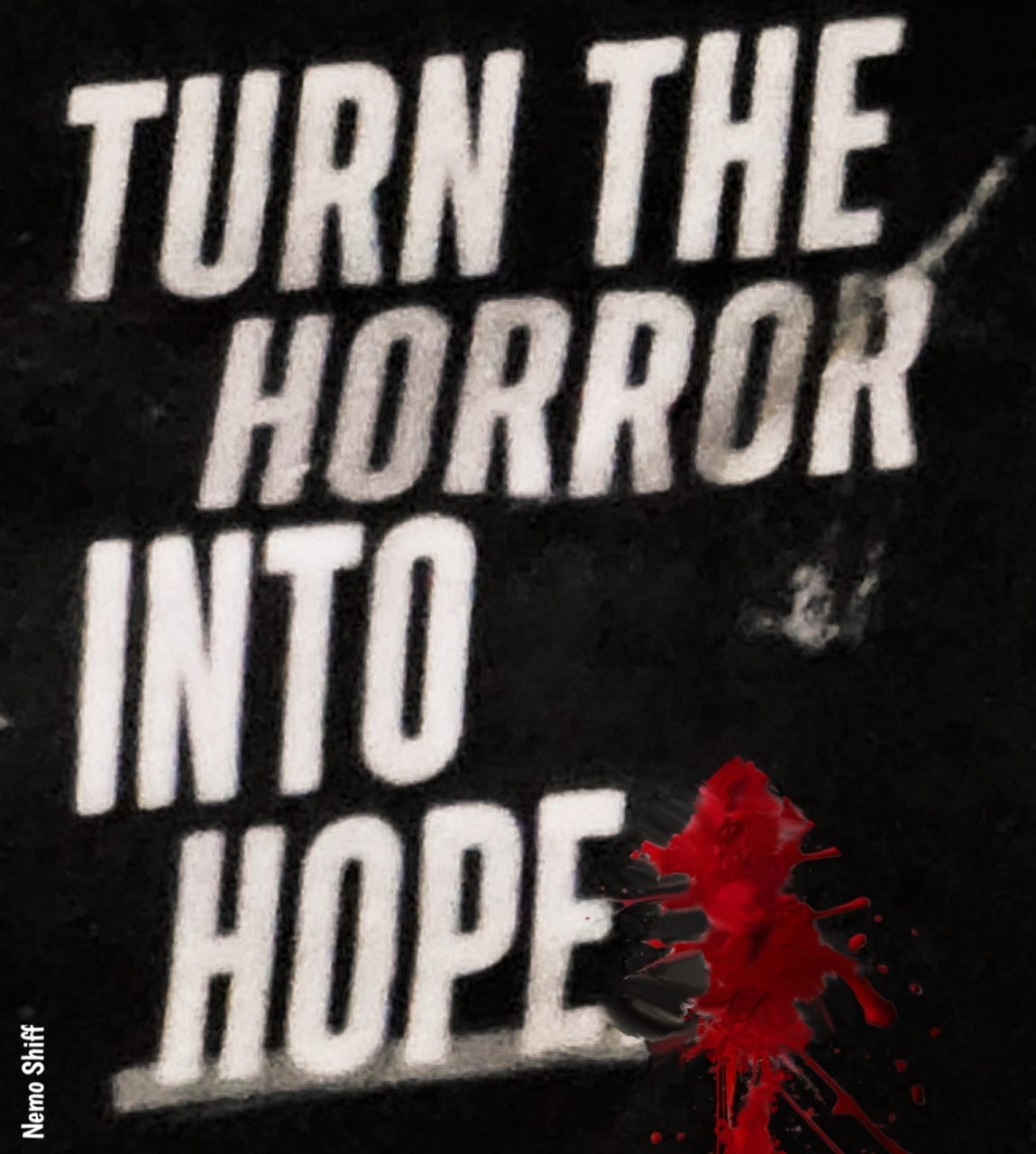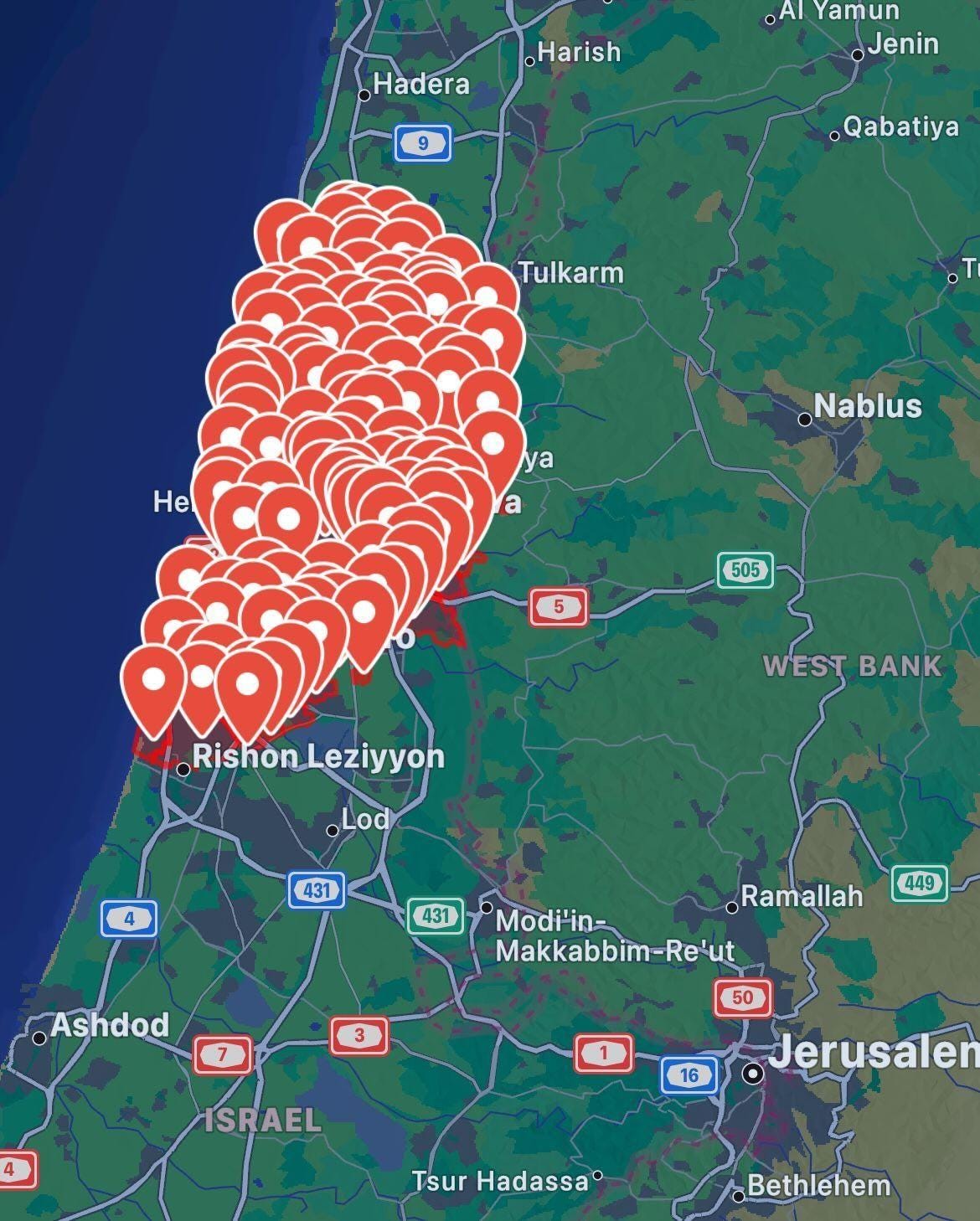Fire before ceasefire
Living in a war zone: Personal Reflections on War, Hope, and the Quest for Peace
In the evening, while in other places in the world, people are eating family dinners, when people return from their busy workday, I'm trying to figure out where the Hezbollah missile hit.
The only thing I knew for sure was that it was close. I knew it because of the explosion, it was so loud that the whole building shook. As I flipped through the news channels to figure out where... The ambulance sirens provided us with an answer.
"It was right next to us" my wife whispered.
As she finished her sentence, a familiar image appeared on the TV screen. We both recognized the street. Usually, it was bustling with people, but now, it was filled with ambulances and fire engines. While we watched, the news anchor added details to the images.
"An interceptor hit the missile at high altitude, breaking it into several pieces, one of which caused the most damage. A fire broke out at the scene following damage to an electrical transformer, glass fell from a Skyscraper, and a bus without passengers was damaged.
The two buildings that were damaged were unoccupied at the time. If there were people there, it could have ended in their death. But there were casualties on the road below them.
Five people were injured in the road accident in the area, including a 54-year-old woman in serious condition, one wounded in moderate condition, and three in light condition.
The police are asking for the public to stay away from that area. And to those living in the area, the police ask that you listen to the officers, it can save lives. Because there are heavy windows that are still in danger of falling. Each one weighs dozens of kilograms. If it falls, it could kill or seriously injure a person.”
In the shadow of this event, there is an attempt to reach a ceasefire between Israel and Lebanon. It is an attempt by the American administration to arrange an agreement between Lebanon, Israel, and Hezbollah. According to the American assessment of the situation, there is a more than 50 percent chance of reaching this agreement.
To this end, Amos Hochstein, US President Joe Biden's envoy, is scheduled to arrive in Beirut tomorrow. According to reports in Lebanon, Hochstein will meet with Lebanese Prime Minister Najib Mikati and Lebanese Parliament Speaker Nabih Berri. After Beirut, he is expected to arrive in Israel on Wednesday or Thursday.
The assessment in Israel is that Iran gave the green light to Hezbollah to agree to a ceasefire, apparently to send a positive message to the US President-elect, Donald Trump.
If those parties agree to this agreement, the United States will declare a 60-day ceasefire. This period will be the big test - to see if Hezbollah will withdraw to the Litani river, and the Lebanese army will move south.
Between us, I'm not optimistic. There was also a ceasefire in 2006 that included an enforcement mechanism, but it collapsed because this mechanism couldn't be enforced on the ground.
But despite this pessimistic tone. I hope that this will push Hamas towards an agreement - that a ceasefire in Lebanon will promote a ceasefire and hostage deal in Gaza. Unfortunately, this is only hope and prayer.






